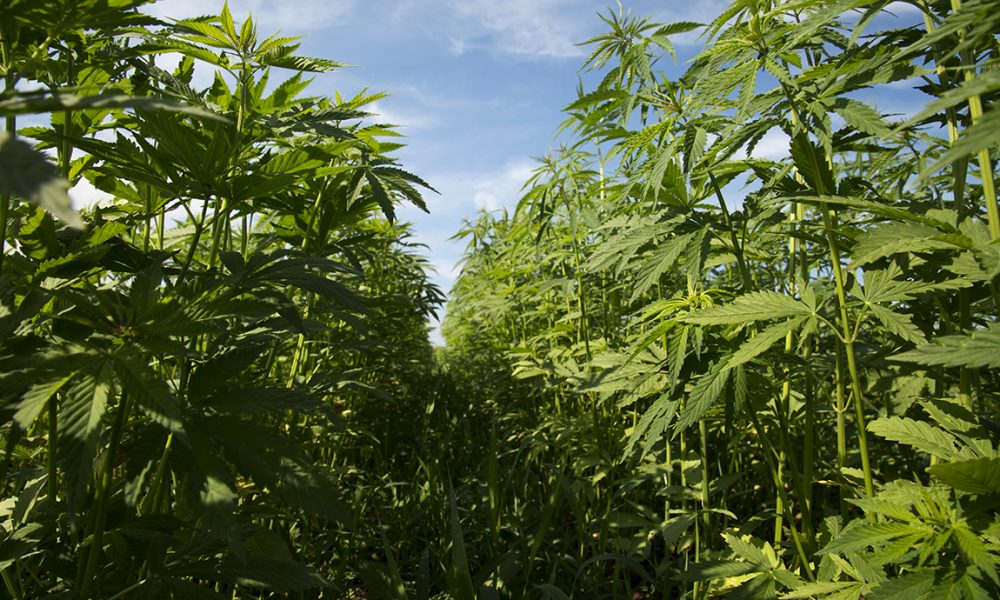Even without robust federal regulations, the U.S. hemp industry in 2022 was larger than all state marijuana markets, and it roughly equaled sales for craft beer nationally, according to a new report.
The research firm Whitney Economics published the report last week, offering a comprehensive assessment of the hemp industry that’s evolved since the crop was federally legalized under the 2018 Farm Bill.
While there’s been frustration within the hemp market as businesses grapple with regulatory challenges, primarily related to cannabinoid products like CBD, the report says that the industry saw about $28.4 billion in sales of those products last year.
“For context, hemp-derived cannabinoid sales nationally were greater than total legal sales of medical and adult-use cannabis in 2022,” it says. With most states having already legalized marijuana in some form, that may come as a surprise.
Notably, the hemp-based cannabinoid market also handily competes with the far more established craft beer industry. The national total for craft beer sales was $28.4 billion in 2022, the same amount as hemp-derived cannabis products, according to the American Beer Association.
“Currently, the total demand for hemp-derived cannabinoids is valued in excess of $28 billion and supports the employment of 328,000 workers, who earn $13 billion in wages. Overall, the total economic impact of the hemp-derived cannabinoid industry on the U.S. economy is in excess of $79 billion,” Whitney Economics says. “While they may seem large, these estimates are actually conservative, because they do not account for demand and employment from gas stations, grocery stores and convenience stores.”
Based on sales tax on hemp products alone, the firm assessed that states generated $1.5 billion in tax revenue collectively from the crop in 2022.
Beau Whitley, author of the report, told Marijuana Moment that the data is critical especially as state lawmakers and regulators move to ban or restrict certain cannabinoid products like delta-8 THC.
Those state officials “do not have the data on how large the market is and the large number of consumers that prefer this over adult-use and medical,” he said. “The result is large labor displacement and increased business failures.”
“It was unfortunate that ‘big cannabis’ is villainizing the hemp industry, when they are making hundreds of million of dollars in revenue from the sale of these very same hemp-derived products,” he said. “We at Whitney Economics feel that the adult-use and medical markets should support the hemp distribution model as it allows for widespread distribution for cannabinoids. If adult-use and medical would follow this path, there would be massive opportunities for growers, processors and manufacturers and would make a significant dent into illicit sales (through greater access and greater legal consumer participation).”
Overall, the hemp industry stands to grow much larger if federal regulations are enacted to allow for the marketing of cannabinoid products as dietary supplements or food items. Congressional lawmakers have put forward proposals to establish those rules given that the Food and Drug Administration (FDA) has asserted it does not have the authority to take that step on its own.
“Industry stakeholders are asking if, from a regulatory perspective, the state-by-state system is working. While some have said that state interventions have addressed serious public safety issues, others have said that the state-by-state systems are doing more harm than good,” the executive summary of the new report says. “They argue that a more enhanced federal regulatory structure is more appropriate, given the size and scale of the industry and the need for standardization at the cultivation, manufacturing and retail levels.”
“In order to address these issues, policy makers at all levels require data. Up to this point, there has not been a comprehensive, national assessment of the hemp-derived cannabinoid industry,” it says. “Whitney Economics has taken a conservative approach to data gathering and projections. The intention of this report is to provide a baseline of data in order to help hemp industry stakeholders understand the level of economic activity associated with hemp cannabinoids, and the impact that policy changes will have on the future.”
The survey was based on data from a “statistically viable sample” of more than 800 operators in 45 states.
“There are huge opportunities for hemp in the U.S. However, the fact that the FDA is not clarifying policy is driving significant uncertainty into the market and increasing investor risk. This is suppressing the growth of hemp in the U.S.,” Whitney said. “Much of this would be addressed with greater clarity by the FDA.”
—
Marijuana Moment is tracking more than 1,000 cannabis, psychedelics and drug policy bills in state legislatures and Congress this year. Patreon supporters pledging at least $25/month get access to our interactive maps, charts and hearing calendar so they don’t miss any developments.
Learn more about our marijuana bill tracker and become a supporter on Patreon to get access.
—
Meanwhile, a pro-business, center-left group of House Democratic lawmakers is pushing to use the next Farm Bill to reduce regulatory burdens on hemp growers by creating a distinction between “industrial” hemp that’s grown for products like fiber and “hemp for any purpose” which would cover crops cultivated to extract cannabinoids like CBD.
A recent House subcommittee hearing specifically focused on the impact of the lack of FDA rules, and a separate pair of bicameral health committees has solicited expert input on the issue as they consider potential legislative fixes.
State marijuana regulators with the Cannabis Regulators Association (CANNRA) also recently sent a letter to congressional agriculture committee leaders, requesting that they use the Farm Bill to adjust the federal definition of the crop and modify rules around hemp-derived cannabinoids.
Connecticut Officials Double The State’s Marijuana Purchase Limit For Adults
Photo courtesy of Brendan Cleak.
Read the full article here









